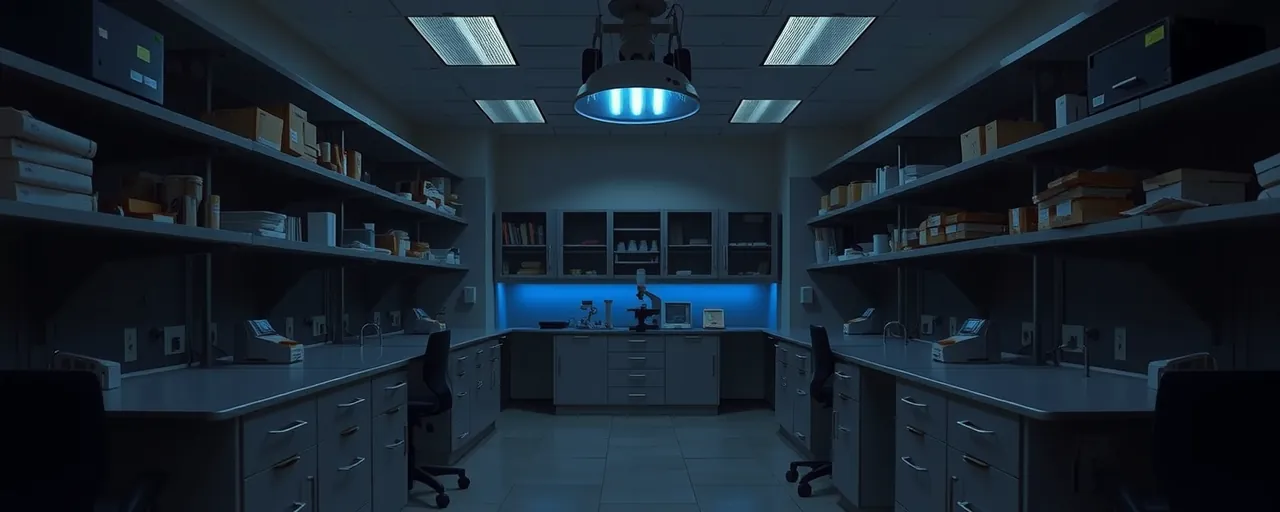A Heartbreaking Setback
For over forty years, the fight against HIV/AIDS has united scientists, advocates, and communities in a shared mission to defeat a relentless virus. New infections have dropped to their lowest since the late 1980s, a testament to human ingenuity and perseverance. Yet, the Trump administration’s decision to terminate a $258 million HIV vaccine program feels like a sudden betrayal. This move halts decades of research at a critical juncture, threatening the hopes of millions who dream of a world without HIV.
At institutions like Duke and Scripps, researchers have poured their lives into unraveling HIV’s complexities. Since 2012, their work—funded by federal grants—has pushed the boundaries of science with mRNA trials, AI-designed immunogens, and nanoparticle innovations. Now, those labs face layoffs, canceled studies, and broken partnerships. A new budget rule, compressing multi-year grants into a single fiscal year, has made future funding nearly unattainable. The consequence is stark: a potential decade-long delay in developing a vaccine.
This decision reverberates beyond spreadsheets. It affects real people. Globally, 1.5 million individuals contract HIV annually, and without a vaccine, projections estimate 143,000 additional US cases and 14,000 AIDS-related deaths by 2030. These numbers represent lives disrupted, families torn apart, communities left vulnerable. To abandon this research now, when breakthroughs are within sight, is to turn away from those who need us most.
The timing couldn’t be worse. Just as science edges closer to a vaccine, the administration’s choice to prioritize short-term savings over long-term progress feels like a step backward. Why would we halt a race we’re so close to winning?
The Global Fight at Risk
The battle against HIV/AIDS stands at a pivotal moment. Antiretroviral therapy has transformed lives, with 30 million people accessing it in 2023. Yet, global goals for 2025—eliminating mother-to-child transmission, expanding sexual health access, reducing inequities—are slipping out of reach. A vaccine remains the cornerstone of prevention, capable of halting transmission worldwide. The Trump administration’s funding cut endangers this vision, favoring fleeting fiscal wins over lasting health solutions.
Developing an HIV vaccine is no small feat. The virus’s rapid mutations and genetic diversity have challenged researchers since the 1980s. Recent trials, like Mosaico, struggled to trigger effective immune responses, but emerging strategies—mRNA platforms, T-cell engagement—offer real promise. These advances build on decades of federally supported science. To cut funding now doesn’t just stall HIV progress; it jeopardizes discoveries that could benefit other fields, from oncology to infectious diseases.
Some argue existing tools—PrEP, condoms, treatment—are sufficient. These measures are critical, yet they fall short of universal prevention. PrEP access remains uneven, stigma hinders uptake, and therapy doesn’t stop new infections. A vaccine would empower vulnerable populations—young women, marginalized groups, low-income regions—offering protection where other tools struggle. By slashing this research, the administration signals a disregard for their futures.
Science Under Siege
This funding cut reflects a broader assault on scientific integrity. The Trump administration has imposed strict oversight, requiring White House approval for NIH grants and sidelining studies on health disparities and LGBTQ+ communities. Political appointees, often lacking scientific expertise, now influence research priorities. Proposals like Project 2025, which aim to dismantle CDC authority and decentralize public health, further erode evidence-based policy. This politicization threatens the foundation of American science.
History offers a stark contrast. PEPFAR, launched in 2003, invested billions in global HIV efforts. The Affordable Care Act expanded care access. These initiatives, rooted in data and compassion, saved countless lives. Today’s cuts, however, prioritize ideology over evidence. Supporters of defunding argue that PrEP and therapy outweigh the need for a vaccine, yet data contradicts this: without prevention, infections will rise, driving up long-term costs.
Public confidence is also at stake. Only 61% of Americans trust the CDC, a drop from pre-pandemic levels. When politics interferes—halting trials, censoring research—trust erodes. Globally, scientists remain respected, with 85% of people valuing their policy contributions. Why, then, does this administration undermine their work at such a critical time?
Reclaiming the Future
We cannot let this setback define our path. NIH funding, at $36.94 billion in 2024, supports 400,000 jobs and generates $94.58 billion in economic impact. HIV research fuels innovations that extend far beyond one disease, driving progress in global health. Groups like HIVMA and UNAIDS warn that defunding threatens 2025 goals. A vaccine is not a luxury—it’s a necessity for a world free of HIV.
Action is urgent. Congress must restore NIH funding, targeting the $50.1 billion proposed for 2025. Communities must rally, supporting organizations that champion HIV equity. Researchers’ voices, alongside those of affected communities, must be amplified. This fight transcends politics; it’s about our shared humanity. Will we allow short-sighted decisions to derail decades of progress, or will we demand a future where HIV is no longer a threat?
The choice is ours. Science, guided by evidence and compassion, must prevail. A vaccine is within our grasp, but only if we act now. Let’s honor the millions touched by HIV by ensuring this research endures. The goal is too vital to abandon.
